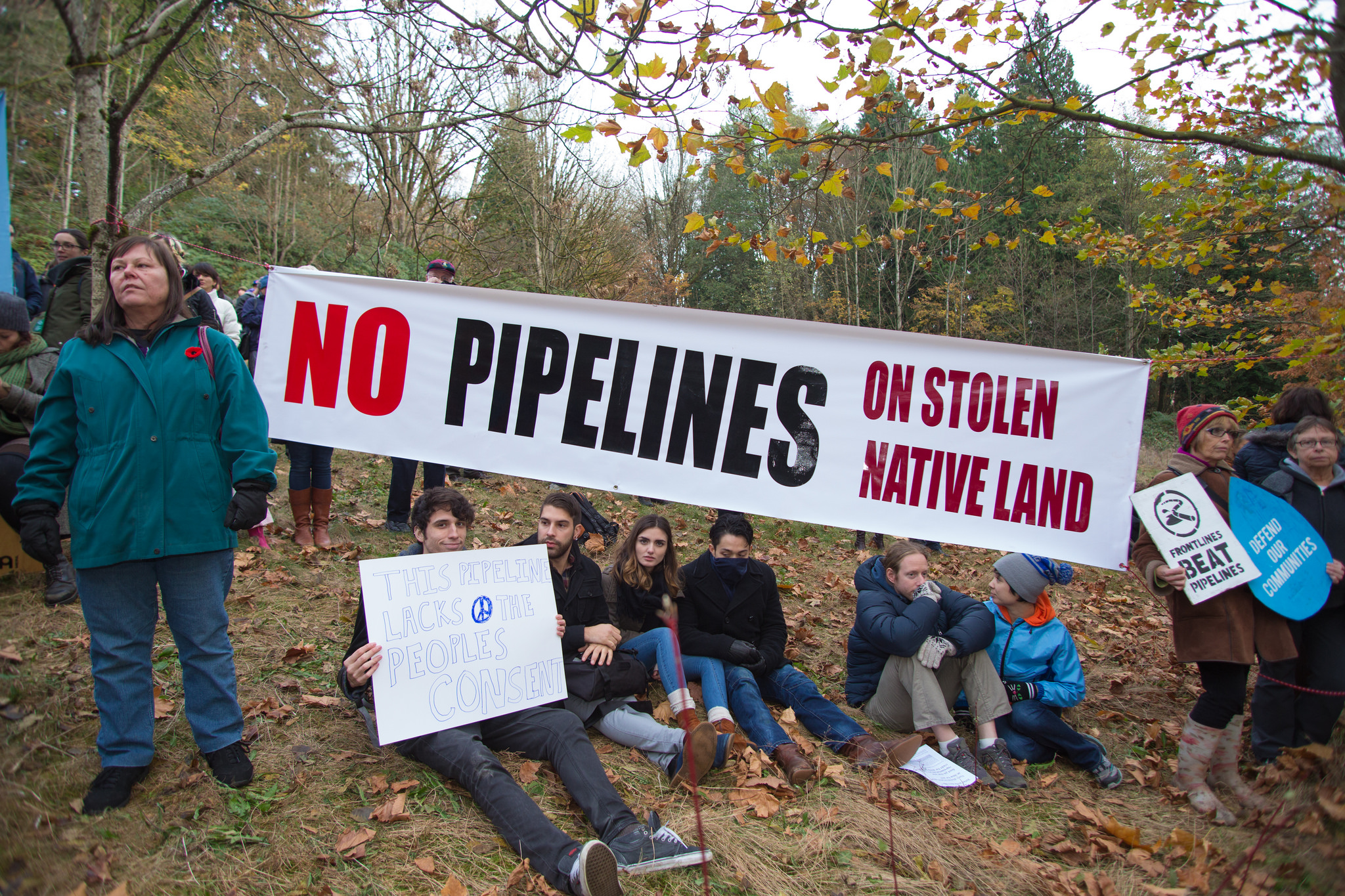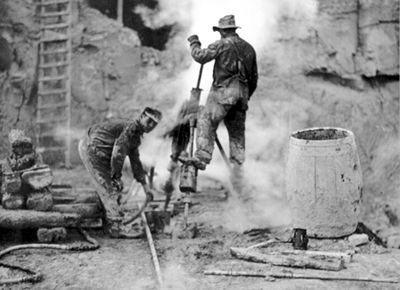Browse "Types of Law"
-
Article
Criminal Law
Criminal law, in its widest sense, includes substantive criminal law, the operation of penal institutions, criminal procedure and evidence, and police investigations (see Criminal Investigation). More precisely, the term refers to substantive criminal law - a body of law that prohibits certain kinds of conduct and imposes sanctions for unlawful behaviour.
"https://development.thecanadianencyclopedia.ca/images/tce_placeholder.jpg?v=e9dca980c9bdb3aa11e832e7ea94f5d9" // resources/views/front/categories/view.blade.php
https://development.thecanadianencyclopedia.ca/images/tce_placeholder.jpg?v=e9dca980c9bdb3aa11e832e7ea94f5d9
-
Article
Criminal Procedure
Criminal procedure is an integral but distinct part of CRIMINAL LAW in Canada.
"https://development.thecanadianencyclopedia.ca/images/tce_placeholder.jpg?v=e9dca980c9bdb3aa11e832e7ea94f5d9" // resources/views/front/categories/view.blade.php
https://development.thecanadianencyclopedia.ca/images/tce_placeholder.jpg?v=e9dca980c9bdb3aa11e832e7ea94f5d9
-
Article
Dangerous Offenders
Sentencing in criminal cases serves a variety of purposes, including deterrence, rehabilitation, denunciation and public protection. Purposes predominate depending on, for example, the nature and circumstances of the offence and the offender.
"https://development.thecanadianencyclopedia.ca/images/tce_placeholder.jpg?v=e9dca980c9bdb3aa11e832e7ea94f5d9" // resources/views/front/categories/view.blade.php
https://development.thecanadianencyclopedia.ca/images/tce_placeholder.jpg?v=e9dca980c9bdb3aa11e832e7ea94f5d9
-
Article
Defamation in Canada
Defamation law protects an individual's reputation and good name. It also restricts freedom of speech. Therefore, courts must carefully balance these two important values in deciding defamation actions.
"https://d2ttikhf7xbzbs.cloudfront.net/media/media/ea0ac524-dd46-427f-80bb-7c88b614515b.jpg" // resources/views/front/categories/view.blade.php
https://d2ttikhf7xbzbs.cloudfront.net/media/media/ea0ac524-dd46-427f-80bb-7c88b614515b.jpg
-
Article
Dower
Dower refers to a form of marital property right. In its ancient form dower entitled a widow to a life interest in a portion of the lands owned by her deceased husband. Widowers were accorded similar rights, known as "curtesy.
"https://development.thecanadianencyclopedia.ca/images/tce_placeholder.jpg?v=e9dca980c9bdb3aa11e832e7ea94f5d9" // resources/views/front/categories/view.blade.php
https://development.thecanadianencyclopedia.ca/images/tce_placeholder.jpg?v=e9dca980c9bdb3aa11e832e7ea94f5d9
-
Article
Duty to Consult
The duty to consult is a statutory, contractual and common law obligation that must be fulfilled by the Crown prior to taking actions or making decisions that may have consequences for the rights of Indigenous peoples in Canada. The duty to consult has been affirmed and clarified by various Supreme Court of Canada rulings, such as the Haida case (2004) and the Beckman v. Little Salmon/Carmacks case (2010). The duty to consult is considered by many to be an important step toward reconciliation with Indigenous peoples.
"https://d2ttikhf7xbzbs.cloudfront.net/media/media/6a400e13-acb7-412e-8e7e-6fdff2cae014.jpg" // resources/views/front/categories/view.blade.php
https://d2ttikhf7xbzbs.cloudfront.net/media/media/6a400e13-acb7-412e-8e7e-6fdff2cae014.jpg
-
Article
Election of 1917
In 1917, Canadians went to the polls on an issue that was literally one of life and death. The federal election of 1917, fought over the issue of conscription during the First World War, deeply divided French and English Canada.
"https://d2ttikhf7xbzbs.cloudfront.net/media/media/6a9bae9d-edd9-4ca5-a3b3-b1572b7d034b.jpg" // resources/views/front/categories/view.blade.php
https://d2ttikhf7xbzbs.cloudfront.net/media/media/6a9bae9d-edd9-4ca5-a3b3-b1572b7d034b.jpg
-
Article
Canadian Electoral System
Electoral systems are methods of choosing political representatives. (See also Political Campaigning in Canada.) Elections in Canada use a first-past-the-post system, whereby the candidate that wins the most votes in a constituency is selected to represent that riding. Elections are governed by an elaborate series of laws and a well-developed administrative apparatus. They occur at the federal, provincial, territorial and municipal levels. Canada’s federal election system is governed by the Canada Elections Act. It is administered by the Chief Electoral Officer. Provincial election systems, governed by provincial election acts, are similar to the federal system; they differ slightly from each other in important details. Federal and provincial campaigns — and that of Yukon — are party contests in which candidates represent political parties. Municipal campaigns — and those of Northwest Territories and Nunavut — are contested by individuals, not by parties.
"https://d2ttikhf7xbzbs.cloudfront.net/media/media/3fcad776-7e8d-47da-86aa-c77b5a9d2744.jpg" // resources/views/front/categories/view.blade.php
https://d2ttikhf7xbzbs.cloudfront.net/media/media/3fcad776-7e8d-47da-86aa-c77b5a9d2744.jpg
-
Article
Employment Law
Employment law in Canada generally refers to the law governing the relationship of an individual employee to an employer, as distinguished from labour law, the law of unionized collective bargaining relationships. Employment law includes both the common, or judge-made, law of "master and servant," which is concerned mainly with wrongful dismissal, and a complex mass of statute law dealing with minimum labour standards, human rights, occupational health and safety and workers' compensation.
"https://d2ttikhf7xbzbs.cloudfront.net/media/media/36644e0b-a223-4610-9438-e3dc39f576e8.jpg" // resources/views/front/categories/view.blade.php
https://d2ttikhf7xbzbs.cloudfront.net/media/media/36644e0b-a223-4610-9438-e3dc39f576e8.jpg
-
Article
Environmental Law
Environmental law is a relatively new field of law comprising laws designed to protect the natural environment.
"https://development.thecanadianencyclopedia.ca/images/tce_placeholder.jpg?v=e9dca980c9bdb3aa11e832e7ea94f5d9" // resources/views/front/categories/view.blade.php
https://development.thecanadianencyclopedia.ca/images/tce_placeholder.jpg?v=e9dca980c9bdb3aa11e832e7ea94f5d9
-
Article
Estate
Estate, very generally, means all property owned by an individual. For example, the property (including land) owned by a deceased person is referred to as that person's estate. The estate can commence and be subject to legal proceedings, and can be liable to pay debts.
"https://development.thecanadianencyclopedia.ca/images/tce_placeholder.jpg?v=e9dca980c9bdb3aa11e832e7ea94f5d9" // resources/views/front/categories/view.blade.php
https://development.thecanadianencyclopedia.ca/images/tce_placeholder.jpg?v=e9dca980c9bdb3aa11e832e7ea94f5d9
-
Article
Family Law in Canada
Family law is critical to most Canadians as it governs relationships between spouses, and between parents and their children. In family law, marriage and divorce fall under federal jurisdiction but most other issues, including adoption and matrimonial property disputes, fall under provincial laws that vary widely. Traditional family structures have changed significantly over time, with increasing numbers of same-sex and common law relationships, and growing divorce rates. This has led to intense debates over the future of family law, court challenges and provincial reviews of legislation.
"https://development.thecanadianencyclopedia.ca/images/tce_placeholder.jpg?v=e9dca980c9bdb3aa11e832e7ea94f5d9" // resources/views/front/categories/view.blade.php
https://development.thecanadianencyclopedia.ca/images/tce_placeholder.jpg?v=e9dca980c9bdb3aa11e832e7ea94f5d9
-
Article
Family Violence
Since the 1970s, there has been an increased awareness that crimes of violence are not only perpetrated by strangers in public places. Research has uncovered a large amount of violent criminal behaviour that occurs between intimates in private locations, such as the home.
"https://development.thecanadianencyclopedia.ca/images/tce_placeholder.jpg?v=e9dca980c9bdb3aa11e832e7ea94f5d9" // resources/views/front/categories/view.blade.php
https://development.thecanadianencyclopedia.ca/images/tce_placeholder.jpg?v=e9dca980c9bdb3aa11e832e7ea94f5d9
-
Article
Farm Law
In Canada more than 90% of farm businesses are family-owned operations; these operations involve about one million people.
"https://development.thecanadianencyclopedia.ca/images/tce_placeholder.jpg?v=e9dca980c9bdb3aa11e832e7ea94f5d9" // resources/views/front/categories/view.blade.php
https://development.thecanadianencyclopedia.ca/images/tce_placeholder.jpg?v=e9dca980c9bdb3aa11e832e7ea94f5d9
-
Article
Federalism in Canada
Federalism is a political system. In it, the powers of government are split between federal and state or provincial levels. The federal (central) government has jurisdiction over the whole country. Each provincial government has jurisdiction over its population and region. In a true federation, the smaller states are not sovereign. They cannot legally secede. Canadian federalism has swung between centralizing control and decentralizing it. Both levels of government get their powers from Canada’s Constitution. But it includes features that do not fit with a strict approach to federalism.
"https://d2ttikhf7xbzbs.cloudfront.net/media/media/11551bec-a5f6-4e78-b101-265ddf7610cb.jpg" // resources/views/front/categories/view.blade.php
https://d2ttikhf7xbzbs.cloudfront.net/media/media/11551bec-a5f6-4e78-b101-265ddf7610cb.jpg
